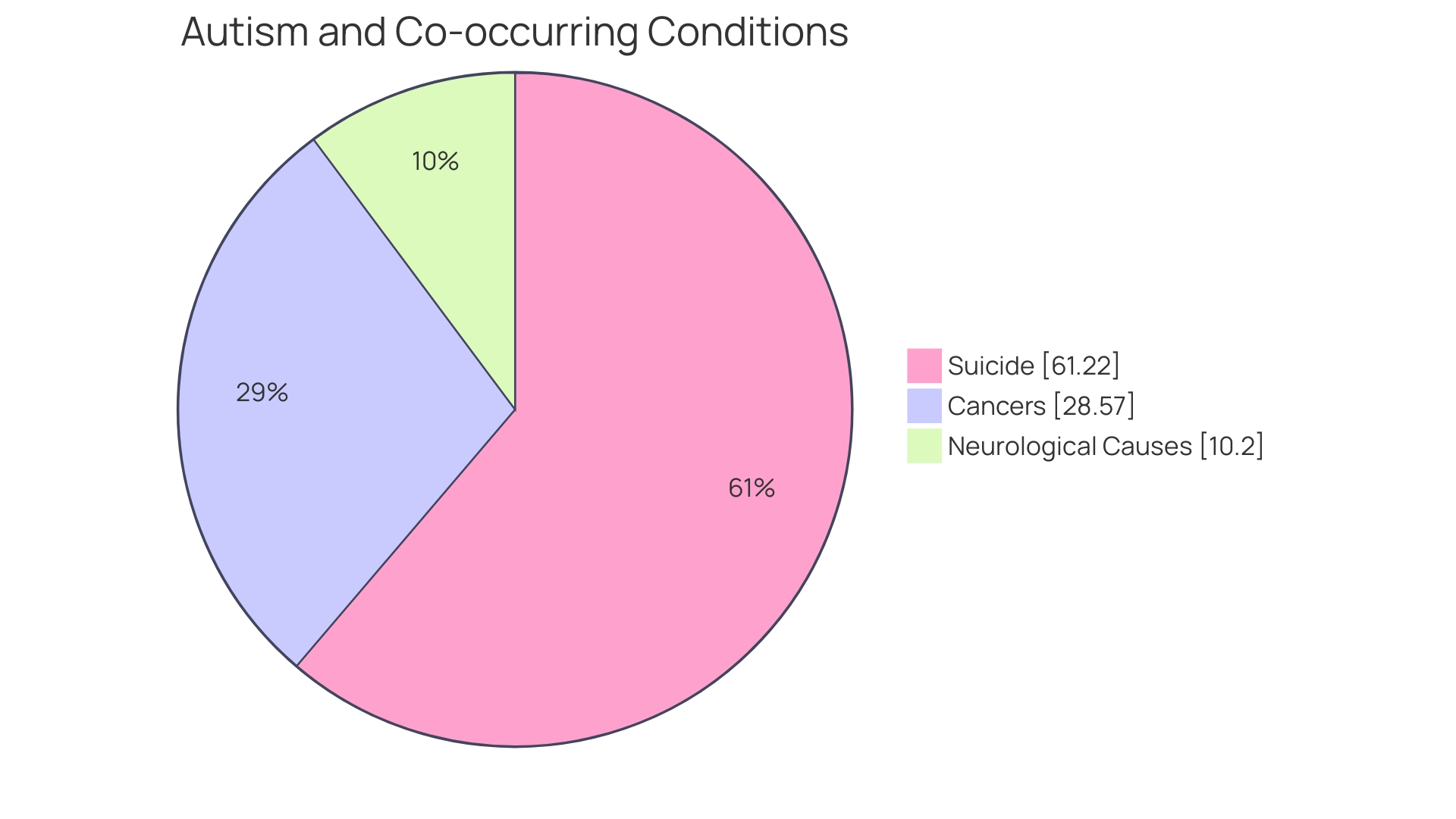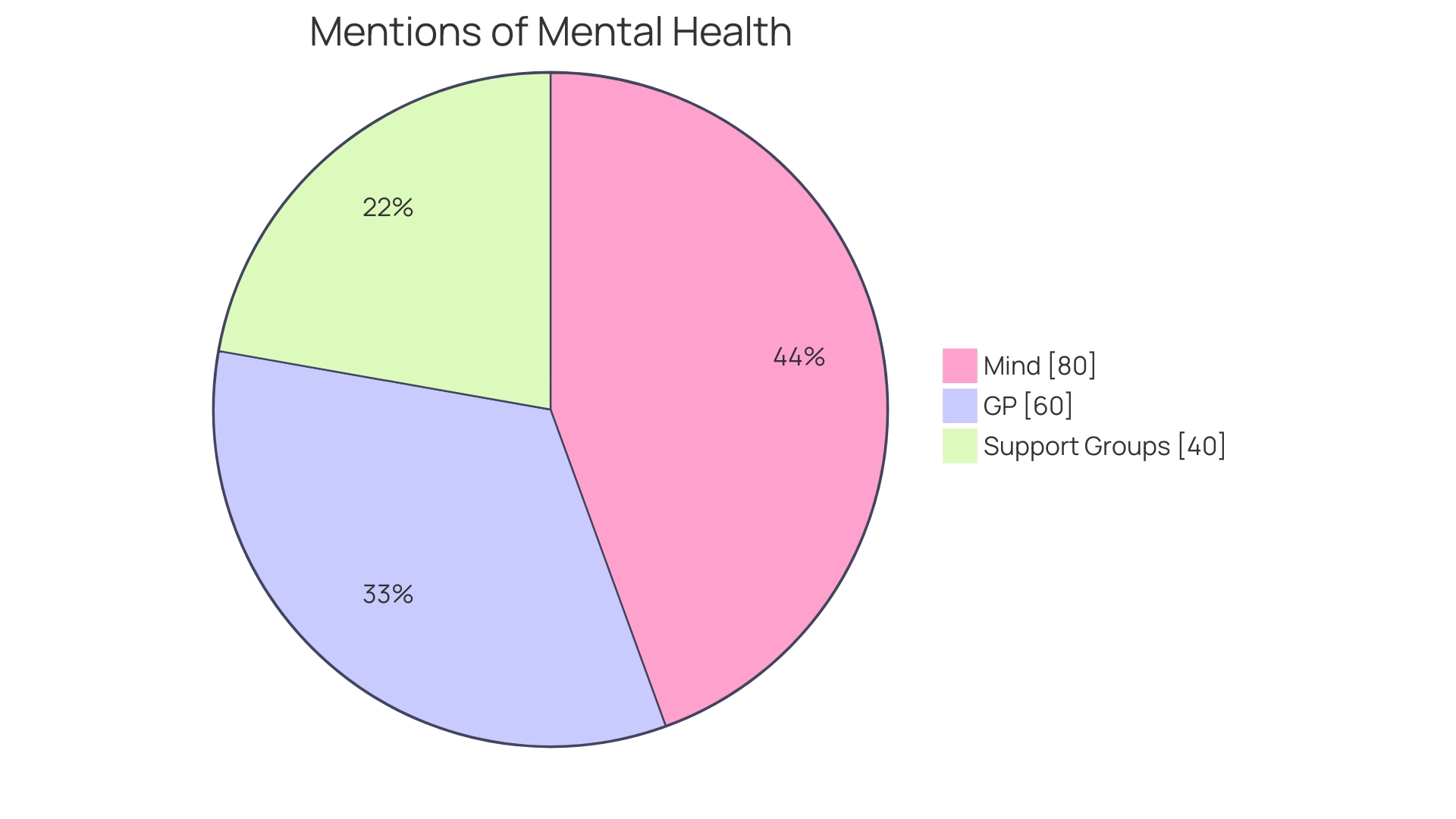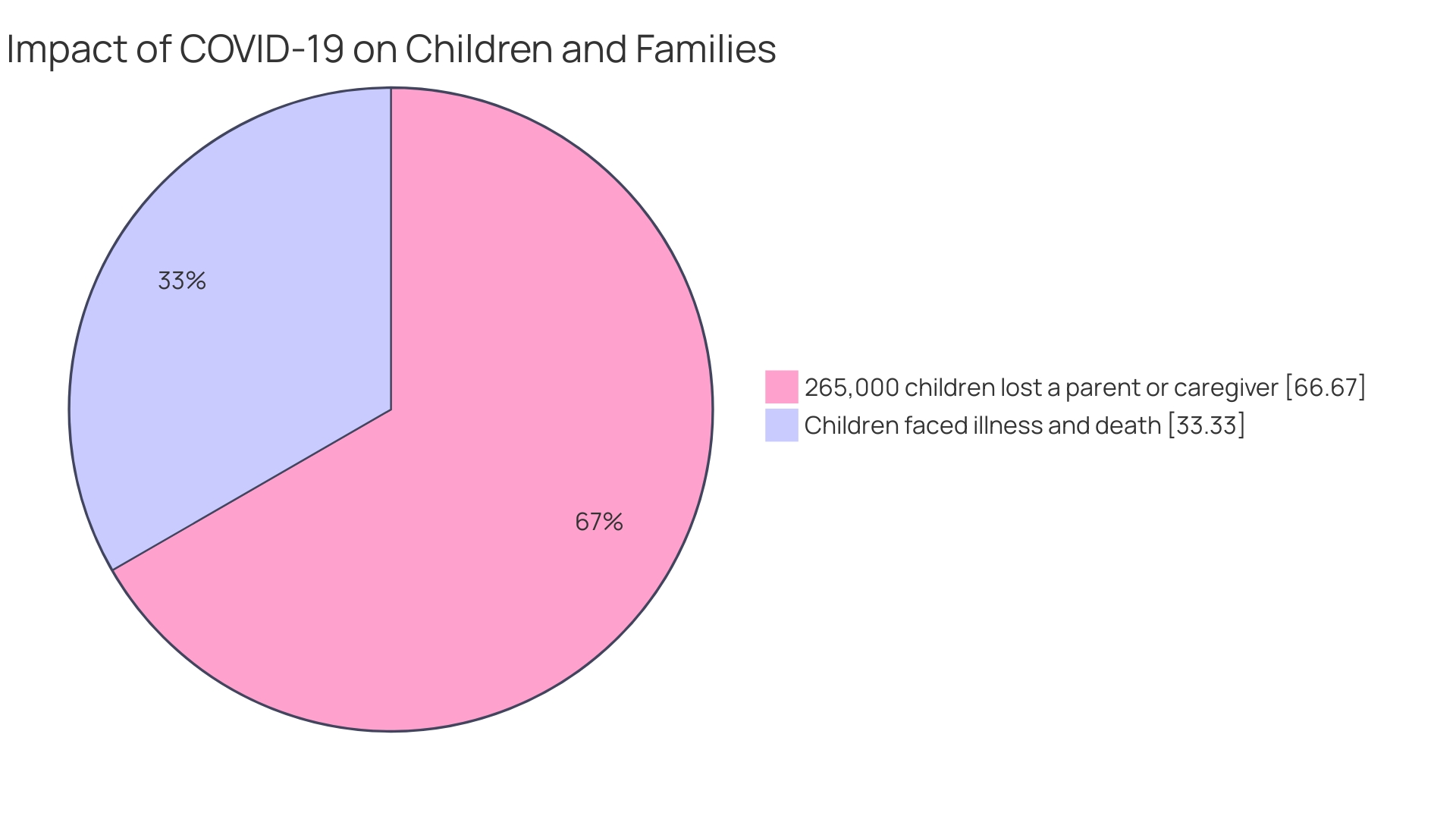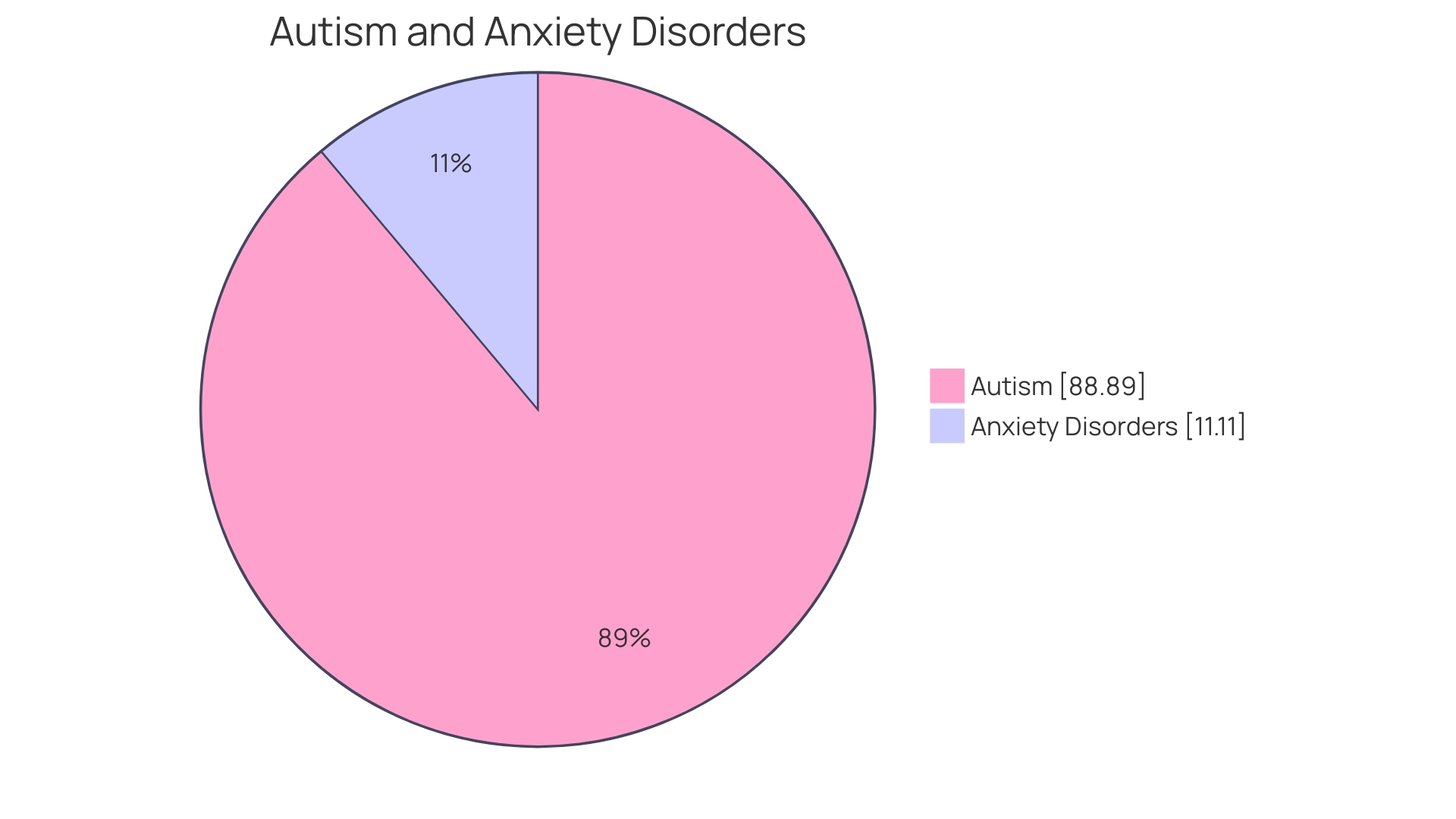Introduction
Sleep disruption is a common experience for children with autism and can have a profound impact on their well-being and the overall dynamics of the family. Understanding the complex challenges associated with sleep issues in children with autism is crucial for parents, as these disruptions can be linked to behavioral and emotional difficulties, as well as potential exacerbators of mental health issues. Recognizing the prevalence and types of sleep problems in autism is essential for care providers, as disturbed sleep can lead to increased risks for physical and mental health conditions.
The impact of sleep issues on children with autism goes beyond comfort—it affects their emotional regulation, cognitive function, and overall daily functioning. Developing strategies to improve sleep quality, such as creating a sleep-friendly environment and establishing consistent bedtime routines, can significantly benefit children with autism. By prioritizing sleep and seeking support from healthcare professionals, parents can play an essential role in promoting the well-being and development of their children.
Understanding Sleep Issues in Children with Autism
For children with autism, sleep disruption is a common experience that not only impacts their own health and development but also the family dynamic as a whole. From trouble with falling asleep to nighttime awakenings and restless slumber, these disruptions can manifest in various ways. A better understanding of sleep-related challenges is not merely beneficial; it is a critical aspect of supporting these children.
With children on the autism spectrum, the intertwining of behavioral and emotional difficulties further complicates sleep patterns. Statistically, emotional and behavioral difficulties in early childhood lead to continued mental health challenges, as about half of these children maintain these issues a year later. Sleep disturbances, ranging from chronic insomnia to irregular sleep patterns, are not only symptoms but also potential exacerbators of mental health issues in neurodiverse populations.
Recognizing the multifaceted reasons behind poor sleep, including medical conditions like obstructive sleep apnea or epilepsy, is vital. Medications for other conditions may also interrupt regular sleep patterns. Biological factors, like the impact of genes on sleep or the processing of brain chemicals such as melatonin, play their roles.
Parents are the frontline observers of these challenges, and understanding them enables informed choices that shape interventions and routines around sleep. Moreover, the sleep difficulties neurodiverse children encounter are a window into their overall well-being, revealing the interconnections between sleep, emotional regulation, and cognitive function.
As experts agree, the path to improving sleep amongst neurodiverse children lies in acknowledging the complicated weave of biological, medical, and environmental threads. For parents, the task is more than just understanding; it involves becoming proactive advocates for their children's sleep quality, paving the way towards stronger mental health and development.

Prevalence and Types of Sleep Problems in Autism
Children with autism often face challenges with sleep that are multifaceted and complex. Close to 80% of autistic children struggle with sleep disturbances which can significantly impact their quality of life and daily functioning. These disruptions not only affect the child but have a ripple effect, influencing the entire family's well-being.
There are various types of sleep issues that autistic children may experience. Behavioral insomnia involves trouble with either falling asleep or staying asleep through the night. Sleep onset association disorder is distinguished by a reliance on certain conditions or routines, such as needing a parent to be present or specific activities before sleep can occur.
Additionally, sleep-related breathing disorders, which include conditions like snoring and sleep apnea, further complicate restful sleep.
Recognizing the unique sleep challenges is crucial for care providers, as disturbed sleep can lead to and exacerbate other health concerns. It is associated with an increased risk of both physical and mental health conditions among autistic individuals. Moreover, it underscores the importance of understanding and managing these sleep disturbances to foster the health and development of autistic children, who already face an increased risk of mortality and reduced life expectancy compared to their neurotypical peers, due to various causes including neurological issues and mental health conditions.
The need for equity in the provision of resources to families of children with autism has been highlighted by the wise words of Dr. David (Dan) R. Offord, 'I do not mind if my children are in a race as long as the race is fair.' Ensuring families have access to the support they require is tantamount to making the race fair, particularly as they navigate sleep issues among a plethora of other challenges.

Impact of Sleep Issues on Children with Autism
For children with autism, getting a restful night's sleep is more than just a comfort—it's a cornerstone of their overall health and day-to-day functioning. A consistent sleep pattern bolsters their capacity to manage emotions, sharpen cognitive abilities, and maintain focus throughout the day. This reverberates through their performance in school and participation in daily activities.
In terms of development and life quality for these children, prioritizing sleep is non-negotiable—and can indeed transform their trajectory.
When pediatricians partner with innovative solutions like Summer Health, parents gain a real-time lifeline through text messaging for managing such complications. Furthermore, eliminating the complexity of medical jargon in visit notes can clarify follow-up actions for parents, supporting continuous care beyond the doctor's office. As we consider emotional and behavioral difficulties in children, early interventions are vital.
In this regard, enhancing sleep quality can be a pivotal intervention strategy.
Navigating these challenges requires staying informed about the latest therapies and treatment benefits while acknowledging the impact of the pandemic, which has hit minoritized communities particularly hard. It's about piecing together a holistic picture of a child's health ecosystem—and sleep is at the heart of it.

Strategies to Improve Sleep in Children with Autism
Parenting children with autism entails embracing unique challenges, one of which is addressing difficulties with sleep. Establishing a sanctuary of rest, where a child's room offers optimal lighting, a comfortable temperature, and minimal noise, can be a cornerstone for improving sleep quality. A predictable bedtime ritual, engaging in serene activities like reading, can cue a child's mind and body toward relaxation and sleep readiness.
Moreover, cultivating sleep-friendly behaviors is paramount, such as remaining in bed and self-soothing practices. Sleep issues often stem from a complex interplay of medical conditions, biological factors, and environmental inputs as evidenced by the work of dedicated professionals at The Center for Discovery. Their research, leveraging AI and machine learning to parse extensive data, emphasizes the nuanced nature of behavioral challenges, aiming to preemptively address disruptive sleep patterns.
It's critical to acknowledge the multifaceted role of sleep—restorative to muscles and tissues, fortifying immunity, and key in hormone regulation for growth and metabolism. Studies underline the role of inadequate sleep in exacerbating emotional and behavioral difficulties, making evident the need for inclusive support and equitable health interventions for neurodiverse children. As sleep significantly influences daily functioning, consulting healthcare professionals is imperative, both to seek shared wisdom and to collaborate on customized care plans.
Access to services like Summer Health's text-based pediatric support further underscores the importance of integrated, ongoing care in the journey towards wellbeing for children with autism.

Conclusion
In conclusion, addressing sleep issues in children with autism is crucial for their well-being and development. Sleep disruptions impact their emotional regulation, cognitive function, and daily functioning. Parents play a vital role in advocating for their children's sleep quality.
Recognizing the prevalence of sleep problems in autism is essential. Close to 80% of autistic children face sleep disturbances, affecting their quality of life and the entire family. Creating a sleep-friendly environment and establishing consistent routines are key strategies.
Seeking support from healthcare professionals and staying informed about therapies is important. Sleep is foundational for overall health, impacting emotions, cognition, and daily activities. Prioritizing sleep empowers parents to promote their children's well-being.
Inclusive support and equitable interventions are crucial. Resources like text-based pediatric support can enhance the well-being of children with autism and their families. By addressing sleep issues, parents contribute to their children's health and success.
Together, we can improve the lives of children with autism through better sleep.




